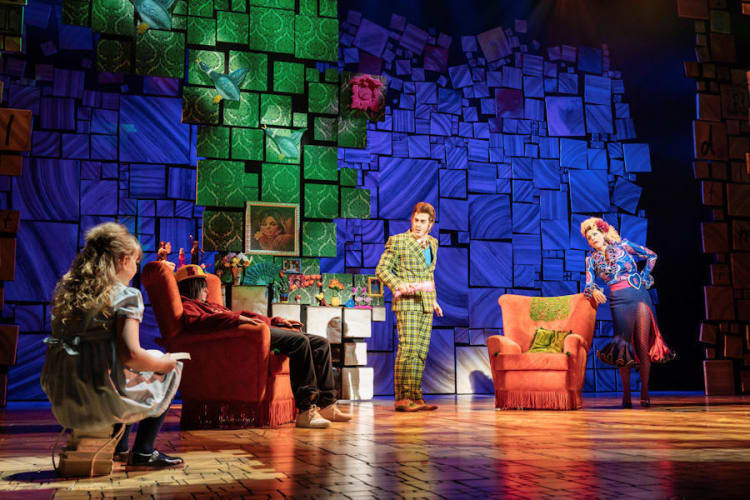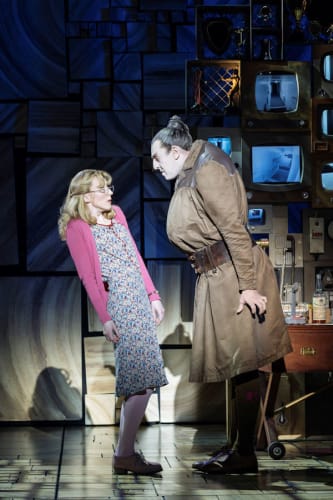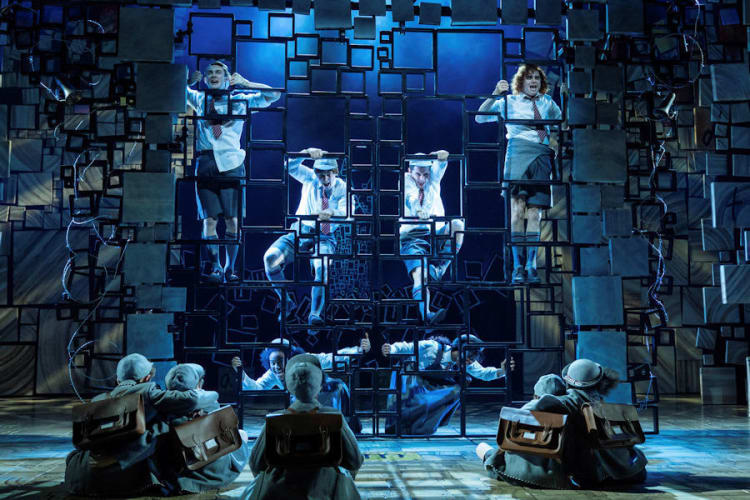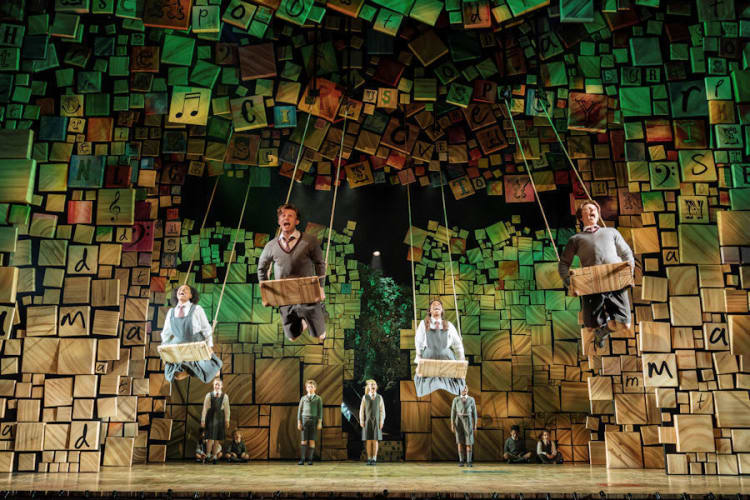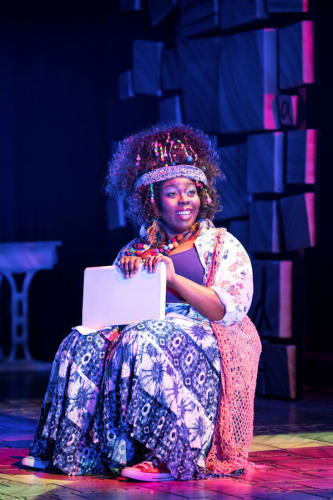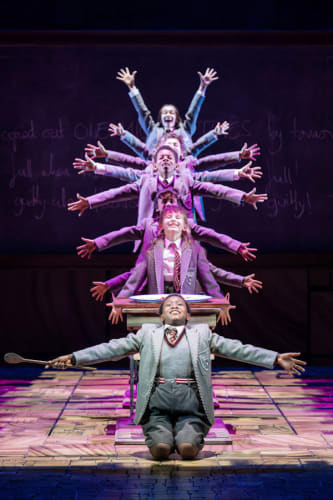Roald Dahl had the imagination of a child: his baddies are gothic in their villainy and monstrous in their selfishness whilst his young heroes/heroines, usually unappreciated by adults, are what every child aspires to be: intelligent, brave, caring and (obviously!) possessing special powers.
Take evil Headmistress Miss Trunchbull (Craige Els). She’s a huge figure, both physically—a former medal-winning hammer-thrower—and in her nastiness. Then there are Matilda’s parents, the senior Wormwoods (Rebecca Thornhill and Sebastien Torkia); they are so wrapped up in themselves and their own interests (which in Mrs Wormwood’s case includes her dance partner, Matt Gillett’s Rudolpho) that they are oblivious to anything else. Mister can’t even remember that Matilda is a girl!
On the other hand, there’s Matilda’s teacher, Miss Honey (Carly Thoms). Names are often such a good indication of character in Dahl’s work! She is sweet, kind, caring, self-effacing but a tiger when roused. And there’s librarian Mrs Phelps (Michelle Chantelle Hopewell), so totally fascinated by and involved in the stories told to her by that voracious reader Matilda that she hangs on her every word and cannot wait for the next instalment.
Largest of all is the smallest, five-year-old Matilda (in this performance played by Annalise Bradbury), who was reading Dickens and even Dostoevsky before she started school—and so interested was she by the latter than she even taught herself Russian! Living in a world of imagination to escape the abuse and neglect visited on her by her parents she becomes the strong character every little girl and little boy would like to be.
Characters like these—and, of course, the spirited children—need a larger than life setting and designer Rob Howell certainly gives it one. Taking over the proscenium arch and filling the stage, the set is made from blocks which remind us of the building and alphabet blocks children play with, except in the library scenes where it’s made almost entirely from books. Automation means that massive walls of scenery can moved swiftly and smoothly on and off stage as easily as the children’s school desks do. And we hardly notice the gap when, for instance, the scene switches to Miss Trunchball’s office which is more a surveillance centre than an academic’s study!
Hugh Vanstone’s lighting makes a huge contribution, from the bright primary colours of the Wormwoods’ living room (such bad taste!) to the drabness of the classroom to the warmth of the library and so much more.
As for the performances, the strength in depth which we have in British musical theatre means that Dennis Kelly’s book and Tim Minchin’s music and lyrics are well served by a very talented company, a company which also includes very talented children whose triple threat performances are the equal of the adults’.
And they involved the audience, young and old, totally. When Matilda called out the bullying she had been receiving, a young voice from the row in front of me—in the darkness I couldn’t make out whether it was a boy or girl, or the age, but he/she was sat on daddy’s knee—shouted “now we’re talking!” to laughter and almost cheers. And Isobelle Chalmers’s Lavender really endeared herself to the audience when she decided that she is Matilda’s best friend!
Director Matthew Warchus has woven together the many strands of the production into an harmonious whole, a piece of musical theatre which does full justice to Dahl’s story and his vision of childhood.
(However, if I may be permitted a little negative criticism, I don’t think the sound team has quite got the Empire’s acoustic right yet. Some increase in the lower frequencies and/or a little less “top” on the children’s voices would aid clarity.)
